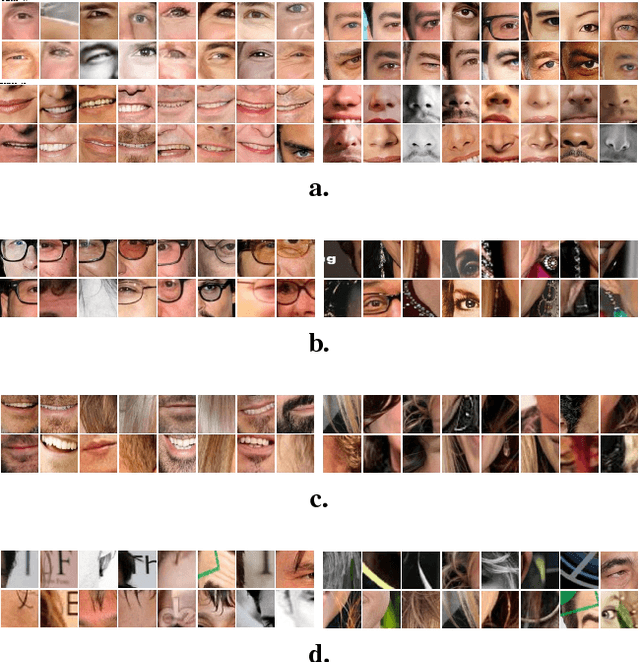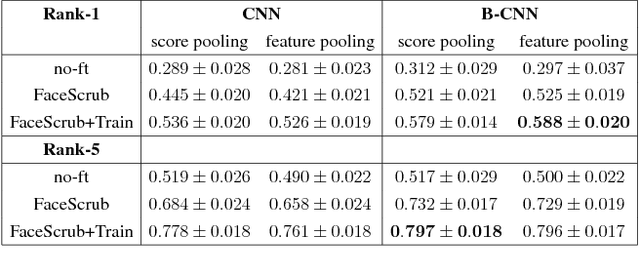One-to-many face recognition with bilinear CNNs
Paper and Code
Mar 28, 2016



The recent explosive growth in convolutional neural network (CNN) research has produced a variety of new architectures for deep learning. One intriguing new architecture is the bilinear CNN (B-CNN), which has shown dramatic performance gains on certain fine-grained recognition problems [15]. We apply this new CNN to the challenging new face recognition benchmark, the IARPA Janus Benchmark A (IJB-A) [12]. It features faces from a large number of identities in challenging real-world conditions. Because the face images were not identified automatically using a computerized face detection system, it does not have the bias inherent in such a database. We demonstrate the performance of the B-CNN model beginning from an AlexNet-style network pre-trained on ImageNet. We then show results for fine-tuning using a moderate-sized and public external database, FaceScrub [17]. We also present results with additional fine-tuning on the limited training data provided by the protocol. In each case, the fine-tuned bilinear model shows substantial improvements over the standard CNN. Finally, we demonstrate how a standard CNN pre-trained on a large face database, the recently released VGG-Face model [20], can be converted into a B-CNN without any additional feature training. This B-CNN improves upon the CNN performance on the IJB-A benchmark, achieving 89.5% rank-1 recall.
 Add to Chrome
Add to Chrome Add to Firefox
Add to Firefox Add to Edge
Add to Edge